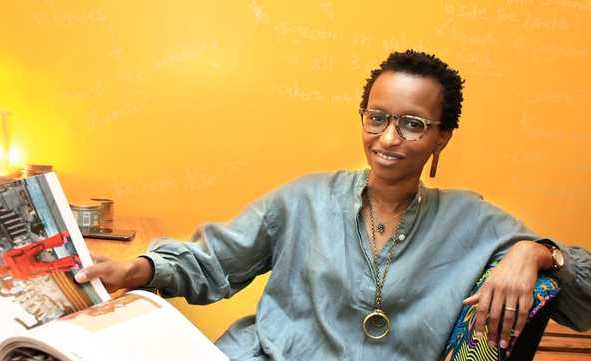One year after losing her husband, Bob Collymore, Wambui Kamiru Collymore has described what Bob’s final minutes were like before he died.
Wambui Kamiru Collymore described what Bob did, what he said and the moment he breathed his last. She said these things in an interview that was published in the Business Daily on Friday. Here’s is an excerpt of what Wambui Kamiru Collymore said in the interview that was conducted by prominent Kenyan writer Jackson Biko:
What was his mood at the very last minute before he died? Do you mind describing that for me?
(Pause) He was waiting. That’s the sense I got. (Pause) When we found out that he only had four to six weeks to live we got down to figuring out what he needed to do so that he would have a peaceful death.
I think it’s very important to prepare for death. So one of the things he wanted to do was to see his daughter, Sarah, who lives in the UK, and to see his mother. Unfortunately his mother couldn’t travel, but his daughter did.
He also wanted the menu to be changed, he wanted to eat a particular Indian curry that I made that he quite liked. We ate that for the next four weeks. He was also very clear he wanted to spend more time with the people who were close to him; his immediate family and some very close friends. And then he set about clearing his desk.
His desk was neat but never as neat as I found it after he died; the mouse, the keyboard, all arranged neatly.
We sat down and talked about what life would be like after he was gone and we set a few plans for the next couple of years, what I need to be achieving or working toward. And one of the things we agreed is I would not use alcohol as an escape. We also talked about the sort of friendships that will exist after he’s gone. He pointed out who I should depend on for the immediate period and for what I should depend on them.
Bob had done many trips throughout his whole life and the anxiety of going on a trip was increased by the fact that he had to pack. This one time, maybe days before he died, he said, that this felt like going somewhere but without having to worry about packing.
When you had the interview with him he knew he was dying and that night he came home and told me, ‘I told Biko some stuff but they will only make sense to him after I’m gone.’ He said this with a big smile on his face.
He said that it was interesting to know that you are dying and everybody else around you doesn’t know and because of that you can speak the truth, even if it will only make sense to them after. (Pause) His last night, he was home in bed because he was clear he didn’t want to die in a hospital. We were waiting. It was going to be any moment.
(Pause) I hadn’t slept for 72 hours. His doctor had come in early in the afternoon and left. The children had earlier taken turns to say bye to him. We made sure that he was comfortable and warm and hydrated because as you’re dying, I was told, you get dehydrated.
We played soft jazz music in the room, because he loved jazz. The children— after saying goodbye to him earlier— later didn’t want to leave his side so they came into the room and eventually slept on the sofa in the room. Now we were waiting. Just before 2 am, he asked me to remove the oxygen mask from his face because he was very weak.
He turned to one of the nurses in the room and although he didn’t have strength to say anything my senses were so heightened and I knew him so well, so I knew what he was trying to convey. I told the nurse, ‘he’s saying thank you.’ Then he turned to the other nurse and I told her the same thing. (Pause) Then he turned to me and told me what he needed to say— which I can’t tell you— plus a message to the children. Then he just took his last breath and he died. (Weeps softly).








